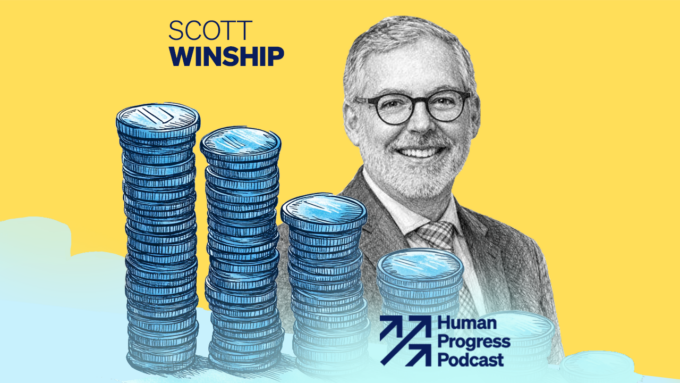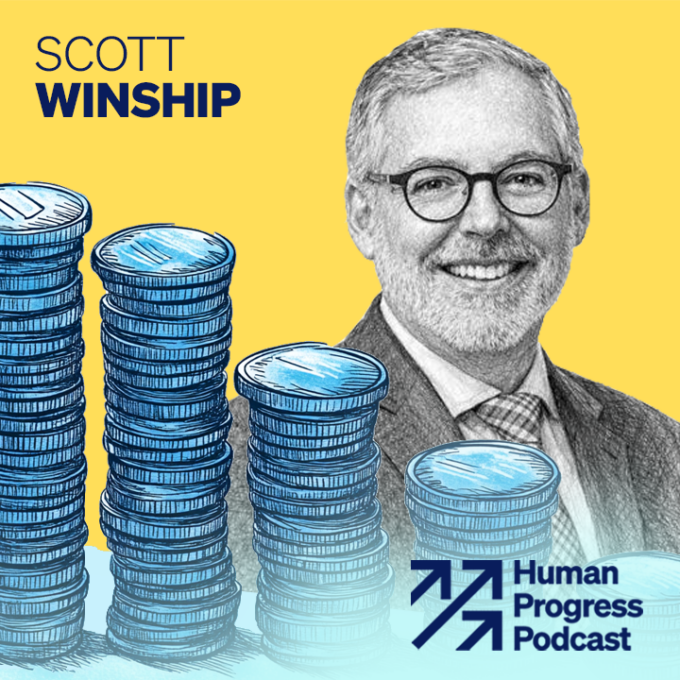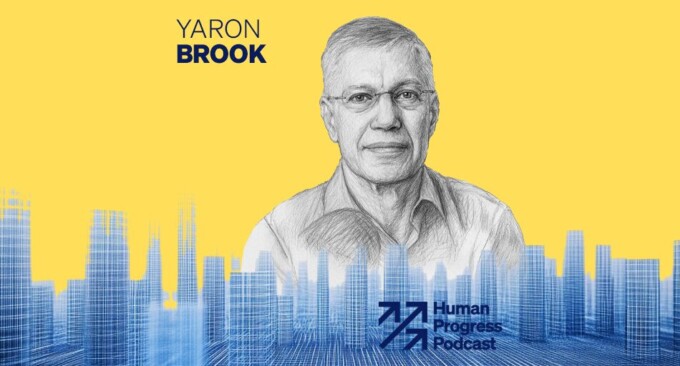Hans Rosling has given a fascinating interview, in which the Karolinska Institute professor opines about the state of the world. Here are the highlights:
• “Extreme poverty has fallen from 85% in 1800 to just 12% today.” (MT: If that trend continues, extreme poverty will be gone by 2030.)
• “Once you get people out of extreme poverty, they have smaller families.” (MT: Economic development, in other words, is key to controlling population growth.)
• “There are about 1.9 billion children, but that number has stopped growing. The world’s population is still increasing, but only because people live longer.”
• Many African economies are growing at a rapid pace.
• “Those in extreme poverty are not a stable group. People climb out and fall back in.”
• “Capitalism has done incredible things, but it can’t help the very poorest in the remotest areas, because they have nothing to offer it.” (MT: I disagree with the second part of that sentence. Not long ago, Bangladesh was one such big, poor, and remote area. People, provided they are allowed to do so, will take care of themselves and their families.)
• “Educating women is one of the fastest ways to reduce poverty.”
• “Foreign aid is going to the wrong places.” (MT: Rosling wants foreign aid diverted from middle income countries, like Mexico, to low income countries, like Malawi. I doubt foreign aid will help Malawi, which has been receiving foreign aid for decades, but I have nothing against taking foreign aid away from Mexico.)
• Technological progress ensures that “It will be easier and quicker ending extreme poverty in today’s poor countries than it was in the West.”
• “We could end poverty before climate change has a chance to make it more difficult.” (MT: Whatever one thinks about global warming, Rosling is surely right to say that combatting extreme poverty is more pressing.)
• “The poor world getting richer won’t mean an end to migration.” (MT: Very true, as Europe is finding out.)
• “The rich world has no idea what’s going on in the poor world.” (MT: Human Progress is helping to change that, professor.)





